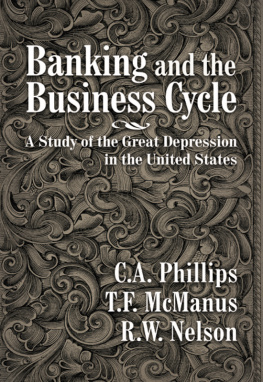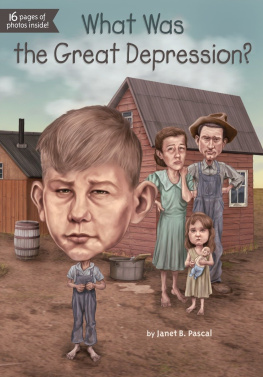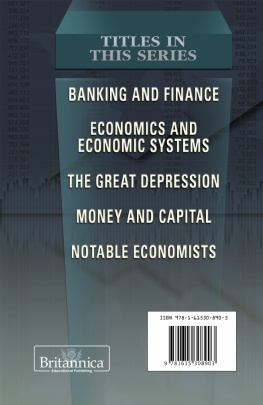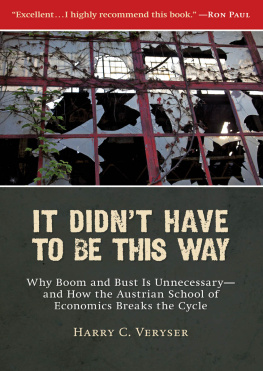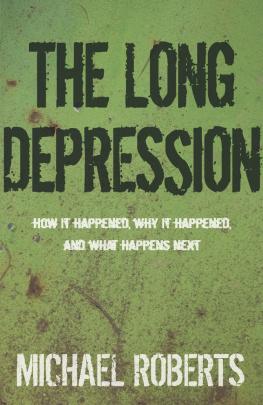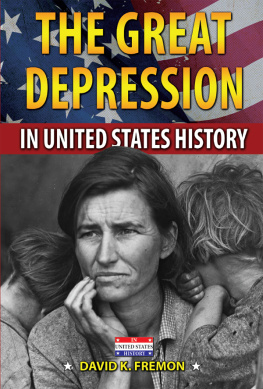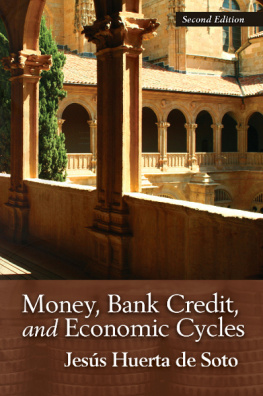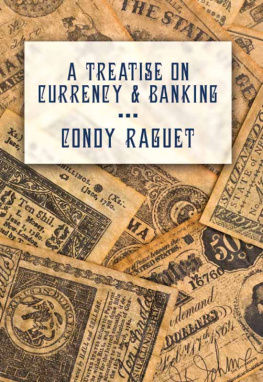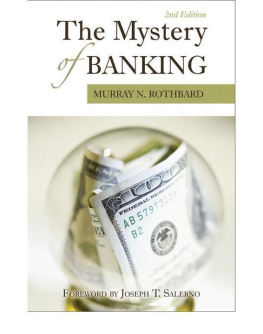BANKING AND THE BUSINESS CYCLE
A Study of the Great Depression in the United States
C. A. PHILLIPS, PH.D.
Dean, the College of Commerce,
State University of Iowa
T. F. McMANUS, PH.D.
College of New Rochelle, New York
R. W. NELSON, PH.D.
State University of Iowa
NEW YORK
THE MACMILLAN COMPANY
1937

COPYRIGHT, 1937,
BY THE MACMILLAN COMPANY
_______________
ALL RIGHTS RESERVEDKO PART OF THIS BOOK MAY BE REPRODUCED IN ANT FORM WITHOUT PERMISSION IN WRITING FROM THE PUBLISHER, EXCEPT BY A REVIEWER WHO WISHES TO QUOTE BRIEF PASSAGES IN CONNECTION WITB A REVIEW WRITTEN FOR INCLUSION IN MAGAZINE OR NEWSPAPER
_______________
Published March, 1937
SET UP AND ELECTROTTPED BY T. MORET & SON
PRINTED IN THE UNITED STATES OF AMERICA
* * * reckless inflations of creditthe chief cause of all economic malaise * * *
Alfred Marshall
* * * the recent world-wide fall of prices is best described as a monetary phenomenon which has occurred as the result of the monetary system failing to solve successfully a problem of unprecedented difficulty and complexity set it by a conjunction of highly intractable non-monetary phenomena.
The Macmillan Committee Report
PREFACE
The task that is attempted in this book is a contribution to an understanding of the banking and financial events of the War and post-War period as the underlying causes of the Great Depression in the United States. There were many causes which contributed to this collapse; among others, mention might be made of misguided tariff policy, war debts, monopolistic practices. Our failure to accord certain non-monetary phenomena special treatment is not to be construed as disregarding their influence; we have preferred to focus attention upon those causes which we believe to be predominantly basic.
There is good reason for this belief. In no previous depression have all of the same non-monetary phenomena been present; in no previous depression have the monetary phenomena been absent. The financial mistakes of the past two decades are not dissimilar to those of England during and following the Napoleonic Wars, and the inflation of the Civil War and the depression of the seventies bear striking resemblance to the recent upheaval; the follies of the ages are repeated again and again. It is a melancholy fact that each generation must relearn the fundamental principles of money in the bitter school of experience. The inflationists, it would seem, we always have with us. It is nevertheless a duty of economists to devote attention to periodic reiteration of the ancient truths of monetary science; it is necessary to make as familiar as possible the workings of the financial machinery if further errors are to be avoided in the future. It is to the mismanagement of the monetary mechanism that most of our recent troubles are chiefly ascribable. And with the juggernaut of another inflationary boom already upon us, emphasis upon the monetary causes of the last depression, to the neglect of others, is not only warranted but needful if progress toward an understanding of business cycles is to be expected.
The scope of this study we have endeavored to explain fully in the introductory chapter. It remains for us here to indicate our obligations to those who have aided in one way or another in the constructive part of the work. Theorists in the field of business cycle causation owe a permanent debt of gratitude to the work of Robertson, Hayek, and Keynes; ours will be sufficiently obvious in the pages which follow, but we would emphasize it at this point. Our purpose has been in large part that of developing the underlying theoretical portion of their works into an explanation of the depression in this country. Of American economists writing before the event, Dr. B. M. Anderson, Jr. and Professor H. Parker Willis were perhaps most conversant with the nature of the post-War banking developments leading up to the 1929 panic, and our own knowledge has been enriched by their analyses. Professor Ralph A. Youngs study for the National Industrial Conference Board, The Banking Situation in the United States, proved an invaluable guide. Finally, Professor T. E. Gregory has unknowingly aided in smoothing several knotty points.
We are indebted to Professor James Washington Bell of Northwestern University and to Dr. Howard Bowen of the State University of Iowa for direct and personal interest while the work was in preparation. Professor Bell read the manuscript in entirety, and made suggestions as to organization and placement of emphasis which have been incorporated. Dr. Bowen was an interested and friendly critic during the earliest stages, and aided in clarifying several theoretical questions, especially in Chapter V. But no amount of acknowledgment to others can shift responsibility for any faults which may inhere in the volume.
C. A. P.
T. F. M.
R. W. N.
February 28, 1937
TABLE OF CONTENTS
Chapter
BANKING AND THE BUSINESS CYCLE
CHAPTER I
INTRODUCTION
In 1921, following the upheaval of prices which accompanied the primary post-War deflation, Professor T. E. Gregory, in writing on the situation then prevailing in the foreign exchanges, was moved to lament that:
Ours is a weary and disillusioned generation, dealing with a world which is nearer collapse than it has been at any time since the downfall of the Roman Empire. The problem which is discussed in this little book is an integral part of the general problem of reconstruction after the ravages of war. It will be shown in detail in the course of the subsequent chapters that the main cause of the dislocation of the exchanges has been the almost universal disregard of the rules of common sense in the treatment of the money supply of the world, or, as it is usually put, the dislocation of the exchanges is an inevitable effect of inflation.
Thirteen years later, near the nadir of the Great Depression, Professor J. M. Clark wrote in like vein:
The peculiarly grave and threatening character of the present emergency needs no proof. As to how close it has brought us to a complete collapse of our economic system economists, like others, can only conjecture.
Certainly ours is a weary and disillusioned generation. The tragedies of the War and the sufferings and disappointments of subsequent years have left the occidental world cynical and despairing. Old ideals, old values, old institutions, old faithsall have crumbled, leaving stretches of barren waste all too receptive to the seeds scattered so freely by economic charlatans and political medicine-men. Partial economic disintegration has been accompanied by the collapse of democratic governments. With the remaining ruins as foundations, with a frantic energy born of despair, no inconsiderable fraction of mankind has set about attempting to construct new shelters in the form of totalitarian states, to be entrusted to the custodianship of authoritarian dictators. Certainly the forces of economic liberalism have suffered severe reverses; whether or not those reverses terminate in a complete rout appears to depend upon the course of events during the remainder of the present decade.
During recent years a number of pseudo-economists have indulged in much glibness about the passing of the economy of scarcity and the arrival of the economy of abundance. Sophistry of this sort has claimed the public ear far too long; it is high time that the speciousness of such fantastic views be clearly and definitely exposed. Attention needs to be focused on the hard elementary fact that mans darkest curse has ever been his poverty, and that it yet is and promises to continue so for numberless generations. No economist worthy of the name, moreover, should need to be reminded that in the absence of scarcity there would be no system of economy and no science of economics.

